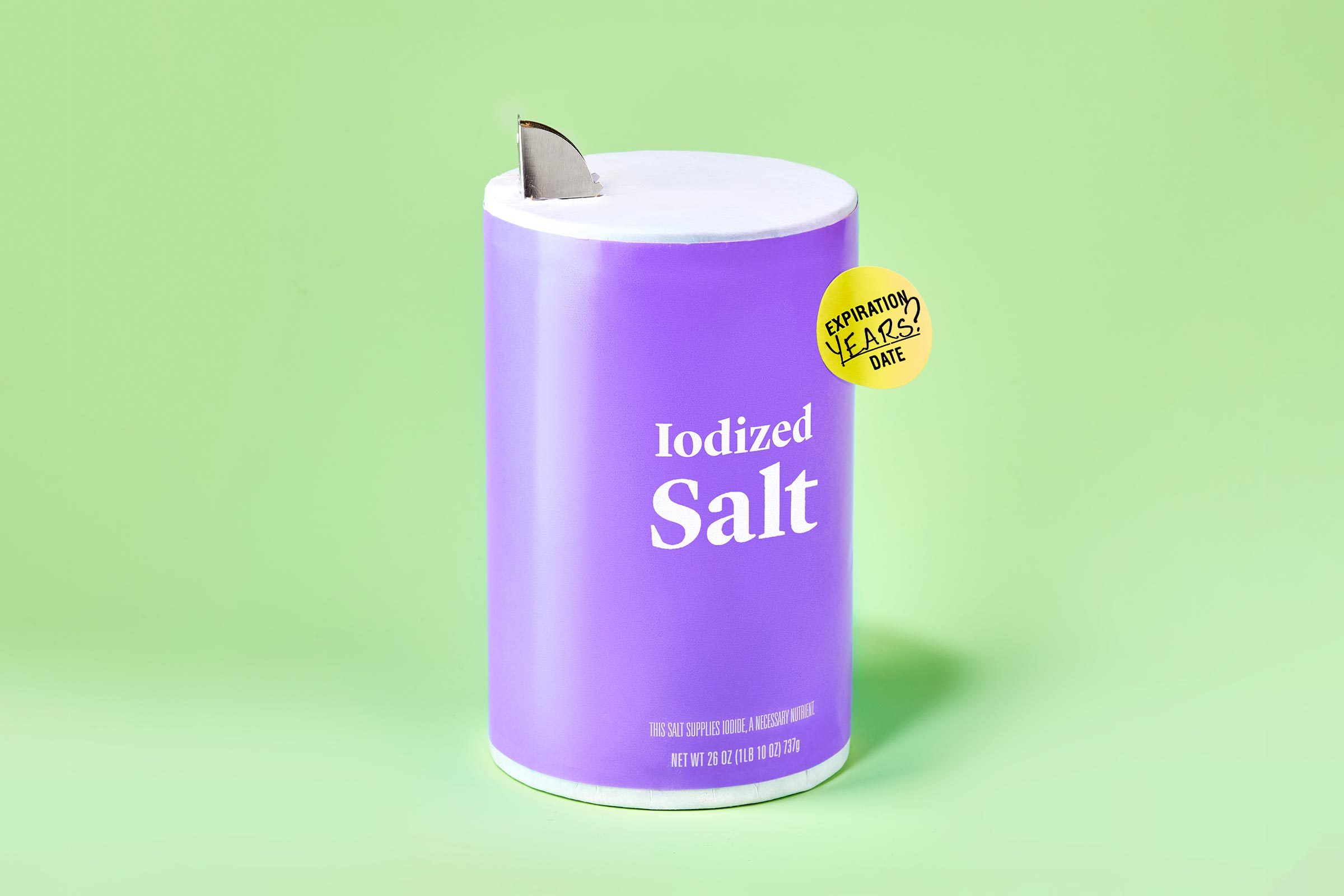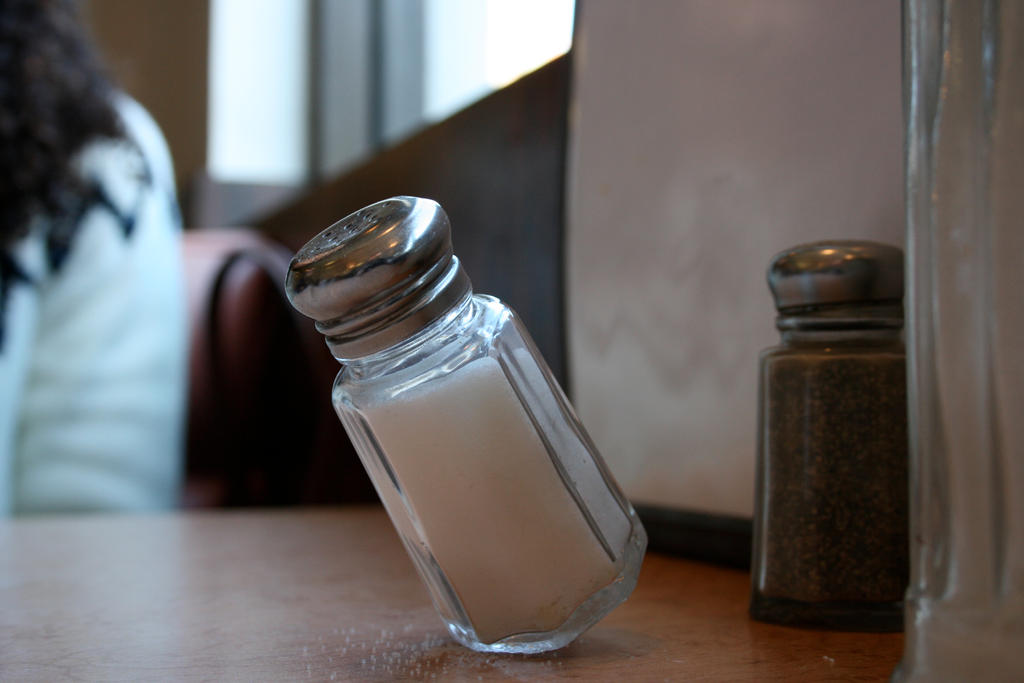Does salt trick really work? This question has intrigued many people who are looking for simple solutions to everyday problems. Whether it's removing odors, cleaning surfaces, or even aiding in health-related issues, the salt trick has been a popular topic of discussion. In this article, we will delve into the science behind the salt trick and explore whether it truly delivers on its promises.
Salt is one of the most versatile substances on the planet. From preserving food to enhancing flavors, its applications are vast. However, beyond the kitchen, salt has been touted as a miracle worker in various household and health-related scenarios. But does it live up to the hype? We will explore this in detail.
This article will provide a comprehensive analysis of the salt trick, covering its effectiveness, scientific basis, and practical applications. Whether you're a skeptic or a believer, this guide will help you make an informed decision.
Read also:Marlon Wayans The Hilarious Journey Of A Comedy Legend
Table of Contents
- Introduction to the Salt Trick
- A Brief History of Salt Usage
- The Science Behind Salt's Properties
- Common Uses of the Salt Trick
- Health Benefits of the Salt Trick
- Household Applications of Salt
- Debunking Salt Trick Myths
- Tips for Using Salt Effectively
- Alternatives to the Salt Trick
- Conclusion and Final Thoughts
Introduction to the Salt Trick
Does salt trick really work? The answer lies in understanding the specific scenarios where salt is applied. The salt trick refers to the use of salt for purposes beyond its traditional role in cooking. This could include removing odors, cleaning surfaces, or even aiding in health-related issues.
Salt's unique properties make it an attractive option for various applications. Its ability to absorb moisture, neutralize odors, and act as a natural disinfectant has made it a staple in many households. However, the effectiveness of the salt trick depends on the specific use case and the scientific principles behind it.
In this section, we will explore the origins of the salt trick and its growing popularity in modern times. From ancient remedies to contemporary practices, salt has maintained its relevance as a versatile substance.
A Brief History of Salt Usage
Salt has been used by humans for thousands of years. Historically, it was one of the most valuable commodities, often referred to as "white gold." The Romans paid their soldiers in salt, and the word "salary" is derived from the Latin word "salarium," meaning salt money.
Traditional Uses of Salt
Throughout history, salt has been used for a variety of purposes:
Read also:Rosanna Arquette The Multifaceted Talent Redefining Acting And Advocacy
- Preserving food: Salt was used to prevent spoilage by inhibiting the growth of bacteria.
- Flavor enhancement: Salt enhances the taste of food by bringing out natural flavors.
- Medicinal purposes: Salt was used in traditional medicine to treat wounds and infections.
- Cultural significance: Salt played a significant role in religious and cultural practices.
Understanding the historical context of salt usage provides insight into its continued relevance in modern times.
The Science Behind Salt's Properties
Does salt trick really work? To answer this question, we need to examine the scientific properties of salt. Salt, or sodium chloride, is composed of sodium and chloride ions. These ions interact with water and other substances, giving salt its unique properties.
Key Properties of Salt
- Hygroscopic: Salt absorbs moisture from the air, making it useful for drying and dehumidifying.
- Antimicrobial: Salt inhibits the growth of bacteria and fungi, making it effective as a natural disinfectant.
- Odor Neutralization: Salt can neutralize odors by breaking down volatile compounds.
- Chemical Reactivity: Salt reacts with acids and bases, making it useful in cleaning and other applications.
These properties explain why salt is effective in various scenarios. However, the effectiveness of the salt trick depends on the specific application and the conditions under which it is used.
Common Uses of the Salt Trick
Does salt trick really work in everyday situations? Let's explore some common uses of the salt trick and evaluate their effectiveness:
1. Removing Odors
Salt is often used to neutralize unpleasant odors. For example, sprinkling salt in a garbage disposal can help eliminate odors caused by food particles. The salt absorbs moisture and breaks down volatile compounds responsible for the smell.
2. Cleaning Surfaces
Salt is a natural abrasive that can be used to clean various surfaces. For instance, mixing salt with vinegar creates a powerful cleaning solution for removing stains and grime. This combination is effective for cleaning kitchen appliances and bathroom fixtures.
3. De-icing Roads
Salt is commonly used to de-ice roads during winter. The salt lowers the freezing point of water, preventing ice from forming. This application has been widely adopted due to its effectiveness and cost-efficiency.
Health Benefits of the Salt Trick
Does salt trick really work for health-related issues? While salt is essential for maintaining bodily functions, excessive consumption can lead to health problems. However, there are certain health benefits associated with the proper use of salt:
1. Salt Water Gargle
Gargling with salt water can help relieve sore throats and reduce inflammation. The salt draws out excess fluid from the throat tissues, providing relief from discomfort.
2. Salt Baths
Salt baths are known for their therapeutic properties. They can help relieve muscle tension, reduce inflammation, and promote relaxation. Epsom salt, in particular, is rich in magnesium, which is beneficial for muscle health.
3. Salt Lamps
Salt lamps are believed to improve air quality by emitting negative ions. These ions can neutralize positive ions from electronic devices, reducing electromagnetic pollution. While the scientific evidence is limited, many people report feeling better after using salt lamps.
Household Applications of Salt
Salt is a versatile substance that can be used for various household tasks. Here are some practical applications:
1. Cleaning Cutting Boards
Sprinkle salt on a wooden cutting board and scrub with a sponge to remove stains and odors. The salt acts as a natural abrasive, leaving the board clean and fresh.
2. Removing Wine Stains
Pour salt on a fresh wine stain to absorb the liquid and prevent it from setting. Blot the stain with a cloth and rinse with cold water for best results.
3. Softening Sponge
Soak a hard sponge in saltwater to soften it and restore its functionality. This simple trick can extend the life of your cleaning tools.
Debunking Salt Trick Myths
While the salt trick is effective in many scenarios, there are also myths surrounding its use. Let's debunk some common misconceptions:
Myth 1: Salt Can Remove Grease Stains
While salt can absorb oil, it is not effective in removing grease stains from fabrics. For best results, use a specialized stain remover.
Myth 2: Salt Lamps Cure Allergies
There is no scientific evidence to support the claim that salt lamps cure allergies. While they may improve air quality, they are not a substitute for medical treatment.
Myth 3: Salt Water is a Cure-All
While salt water has some health benefits, it is not a cure for all ailments. Always consult a healthcare professional for proper diagnosis and treatment.
Tips for Using Salt Effectively
To maximize the effectiveness of the salt trick, follow these tips:
- Use the appropriate type of salt for each application (e.g., table salt, kosher salt, or sea salt).
- Measure the amount of salt carefully to avoid overuse, which can lead to unintended consequences.
- Combine salt with other substances, such as vinegar or baking soda, to enhance its effectiveness.
- Test the salt trick on a small area first to ensure it does not damage surfaces or fabrics.
By following these tips, you can ensure that the salt trick works effectively in your household.
Alternatives to the Salt Trick
While the salt trick is effective in many scenarios, there are alternatives that may be more suitable depending on the situation:
1. Baking Soda
Baking soda is another versatile substance that can be used for cleaning, deodorizing, and neutralizing acids. It is often used as an alternative to salt in household applications.
2. Vinegar
Vinegar is a natural disinfectant and cleaning agent. When combined with salt, it creates a powerful solution for various tasks.
3. Essential Oils
Essential oils can be used to enhance the effectiveness of the salt trick. For example, adding a few drops of tea tree oil to a saltwater solution can increase its antimicrobial properties.
Conclusion and Final Thoughts
Does salt trick really work? The answer is a resounding yes, but with certain caveats. While salt is a versatile substance with numerous applications, its effectiveness depends on the specific use case and the conditions under which it is used. By understanding the science behind salt's properties and following best practices, you can harness its full potential.
We encourage you to try the salt trick in your household and share your experiences in the comments below. Additionally, feel free to explore other articles on our website for more tips and tricks. Together, we can make informed decisions and improve our daily lives.


